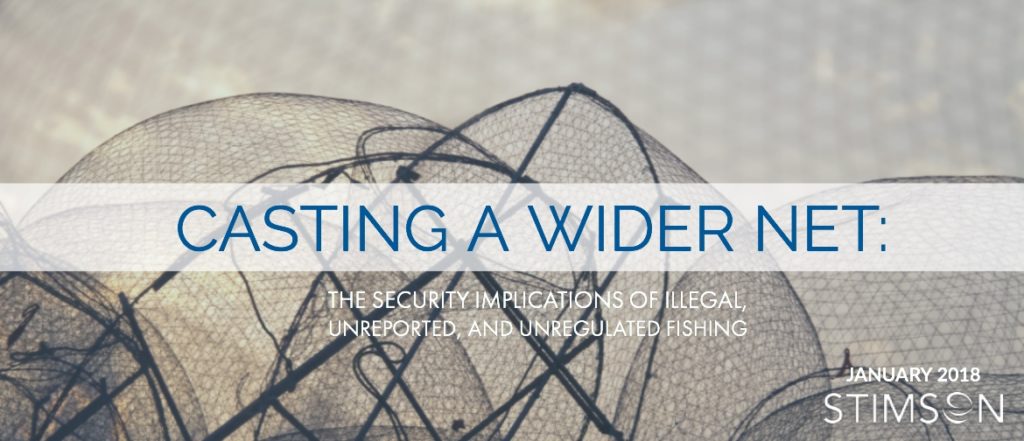The world’s fisheries are on the brink of collapse. The Food and Agriculture Organization of the United Nations (UNFAO) estimates that nearly 90 percent are fully exploited or overexploited and depleted, while demand for seafood continues to increase. Faced with this reality, fishing fleets are scavenging the globe to meet the growing demand, and in the process often engage in illegal, unreported, and unregulated (IUU) fishing. These pervasive operations do not just pose a threat to the environment, but also a significant threat to national, regional, and global security. This report details those threats, which are the:
- Threat to ecological security
- Threat to economic security
- Threat to food security
- Threat to geopolitical stability
- Threat of maritime piracy
- Threat of transnational organized crime
The perpetrators of IUU fishing are not just the local fisherman catching a bit more than his quota allows, but include a range of offenders: from foreign vessels fishing illegally in another nation’s sovereign waters to criminal networks that participate in a variety of illicit activities, including trafficking in drugs, arms, and humans, as well as utilizing shell companies to launder money and slaves to carry out their operations. For these reasons and many others explored within this report, IUU fishing poses a risk to national security and addressing it will require more effort and focus than can be addressed by the conservation community and natural resource management agencies alone. These threats necessitate countries across the world, and particularly the United States, to develop a whole-of-government strategy to combat IUU fishing. This integrated approach involves tapping into the expertise of agencies across government, including those with knowledge spanning from natural resource management, development, trade and finance, to intelligence gathering and law enforcement, as well as the wide community of stakeholders interested in combating IUU fishing.
Casting a Wider Net: The Security Implications of Illegal, Unreported, and Unregulated Fishing, argues that IUU fishing is a threat to national security due to its multivariate impacts on individuals, communities, economies, institutions, and governments. It sets out a series of recommendations that articulate a whole-of-government strategy that the U.S. government and other foreign partners can utilize to curb the impacts of IUU fishing, which are to:
- Create a whole-of-government approach
- Increase engagement of Combatant Commands (COCOMS)
- Expand shiprider agreements between the U.S. and foreign countries
- Encourage countries to ratify, implement, and enforce the Port State Measures Agreement
- Dedicate resources to increase monitoring and enforcement capacities
- Advocate for comprehensive foreign domestic fisheries regulations and catch reporting requirements
- Encourage greater transparency of the fishing industry
- Mandate use of Vessel Tracking Systems (VTS) to track fishing fleets
- Increase data and information collection and sharing
- Increase dialogue and partnerships between the U.S. government, non-governmental organizations, and the private sector
With these recommendations in hand, countries around the globe will be better poised to address the attendant security threats of IUU fishing.

